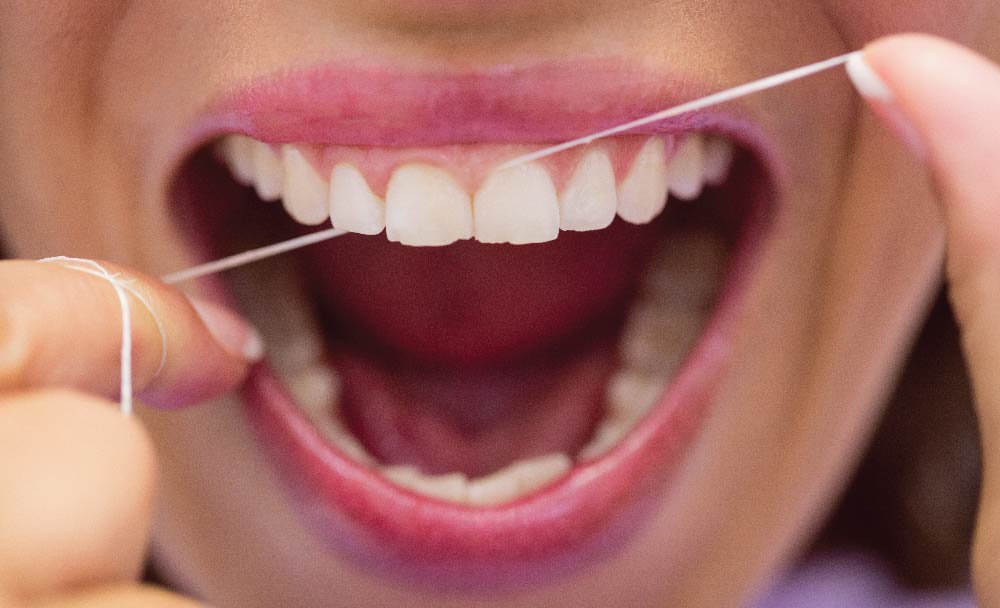
Top 8 Common Mistakes That Can Worsen Your Diabetes Condition
May 24, 2021
Connection Between Diabetes And Wound Healing
May 24, 2021Most diabetes patients understand that high blood sugar levels associated with the condition can have an impact on the entire body. The risk of complications like kidney disease, heart disease, vision impairment, and nerve damage is well recognized, but the connection between diabetes and oral health is often overlooked. So, how does diabetes affect oral health and what can you do about it? Let’s find out.
How Does Diabetes Cause Oral Health Problems?
There is a strong connection between type 2 diabetes and oral health complications, but this is not exclusive to type 2 diabetes patients. Studies show that there is also a link between type 1 diabetes and oral health problems, making it important for all diabetics to be more cautious about oral health. In both types of diabetes, poor management of blood sugar levels is the main risk factor for dental disease.
When diabetes is not managed effectively, it is known to affect immune function and the body’s ability to fight off disease-causing pathogens. This includes common bacteria that cause gum functions. High blood sugar levels also make diabetics more vulnerable to fungal infections of candidiasis, which can affect the mouth to cause oral thrush. Dryness of the mouth is another common concern that increases the risk of other oral health problems.
Warning Signs Of Oral Health Problems
Diabetes makes you vulnerable to a faster build-up of plaque and tartar, xerostomia or dry mouth, oral thrush, cavities and tooth decay that can result in tooth loss, and gum infections and inflammation called gingivitis (if untreated can lead to periodontitis a more serious gum disease that also destroys supportive tissue and bone). Although the onset of oral disease doesn’t always present clear symptoms, you should look out for the following warning signs:
Redness and swelling of the gums
Gum inflammation and bleeding when brushing or flossing
Changes in the alignment or way your teeth fit together
Halitosis or chronic bad breath
The appearance of gaps between the teeth and gums
Teeth begin to feel loose
Simple Steps To Prevent Oral Health Complications
The most important step that you can take to lower your risk of diabetes-related dental health complications is by keeping your blood sugar levels in check at all times. This requires routine monitoring of blood sugar levels and strict adherence to recommendations for medication, diet, and lifestyle. In addition, you can take the following precautions:
Eliminate all acidic and carbonated drinks from your diet, including beverages like soda and colas, energy drinks, and citric juices. These drinks can erode tooth enamel, making the teeth more vulnerable to decay.
Use dental floss daily to make sure that food residue does not collect between teeth, where it can start to decay.
Brush your teeth at least twice a day for two minutes at a time, using a gentle or soft bristle brush. You can also use electric toothbrushes, but the key is to cover all of the teeth to reduce plaque build-up, rather than applying pressure.
Use a tongue scraper or gently brush your tongue as this can also help to reduce the build-up of oral bacteria.
Check your mouth regularly for any changes including dry areas, white patches, or bleeding. Seek immediate dental care if you notice any such changes.
Schedule regular dental appointments as diabetes patients are advised to undergo dental screening at least twice a year or more frequently if required.
Quit smoking immediately as it increases the risk of all diabetes complications, including gum disease and tooth loss.
Keep in mind that if you have any dental procedure scheduled, you should make sure that your blood sugar levels are under control before going ahead with the procedure unless it is an emergency. This is important as elevated blood sugar levels can increase the risk of post-procedure infections significantly.





